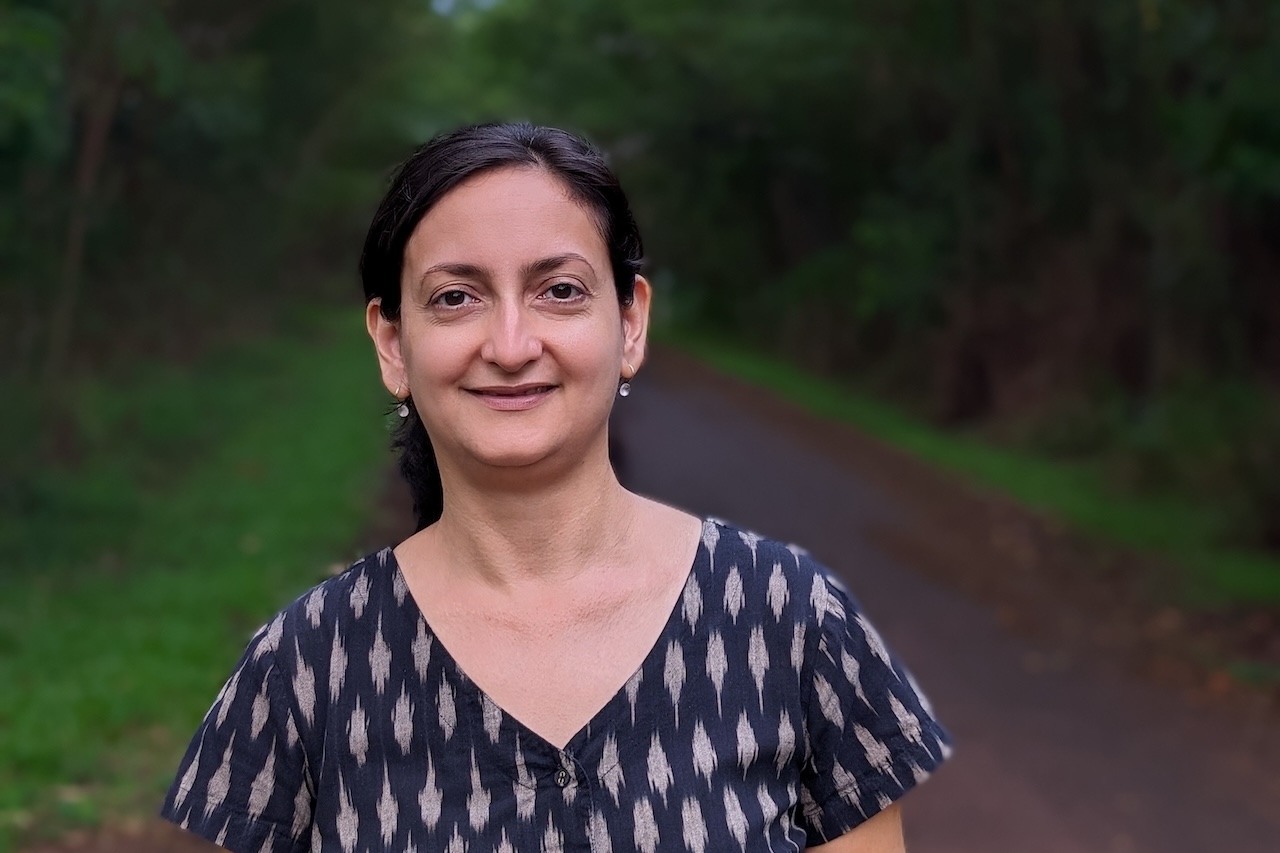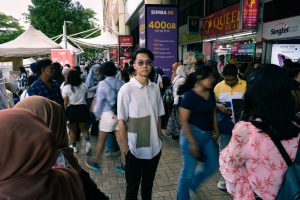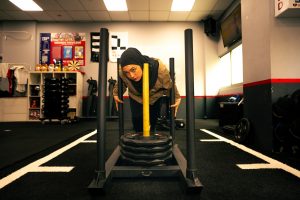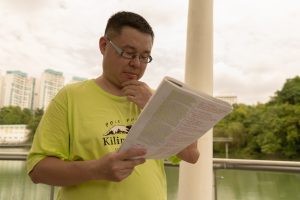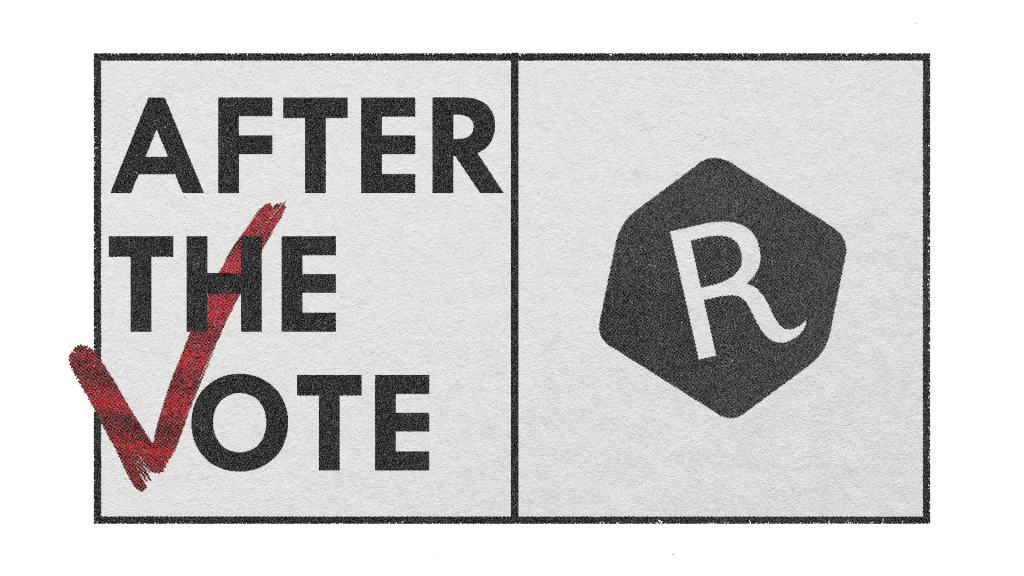
‘After the Vote‘ is a RICE Media series where Singaporeans from all walks of life share their hopes for Singapore—the changes they envision, the values they want to uphold, and the future they want to help shape.
We take a step back to explore the bigger picture: What kind of Singapore are we building beyond the ballot box? Through these conversations, we uncover the aspirations and concerns shaping the nation in the next five years and beyond.
The views in ‘After the Vote’ are those of the interviewees and based on their experiences; they do not reflect the publication’s stance.
All images courtesy of Pooja Bhandari unless stated otherwise.
For Pooja Bhandari, her children’s carefree early years stand in stark contrast to their time in the local school system.
A former Gifted Education Programme student, she had trusted the system would help her children thrive too.
However, both her children, now aged 14 and 17, struggled to find support as students with attention deficit hyperactivity disorder (ADHD) during their early schooling years.
The 47-year-old ended up moving her children to international schools with smaller class sizes and greater focus on social-emotional well-being. And this made a world of difference in rekindling her children’s confidence.
However, the experience left her wondering: What about the parents who can’t afford this sort of support? Beyond Special Education schools, how can parents of special needs kids manage all these challenges? In her 11 years working in social services, why did so many colleagues struggle to gather enough time or support to serve children in their care without burning out?
It motivated her to start EveryChild.SG in 2023. The advocacy organisation seeks to rethink Singapore’s education system and champion a better childhood for, well, every child.
RICE is taking a longer-term view towards the Singapore we’re collectively building. And Pooja has plenty to say about what needs to change in order for children in Singapore to thrive.
What is one change you hope to see in Singapore by 2030 that would make life meaningfully better for people like you?
I hope that by 2030, Singapore will rediscover the small, everyday joys of both childhood and parenthood—the kind that don’t show up on report cards or resumes, but which we remember till the end.
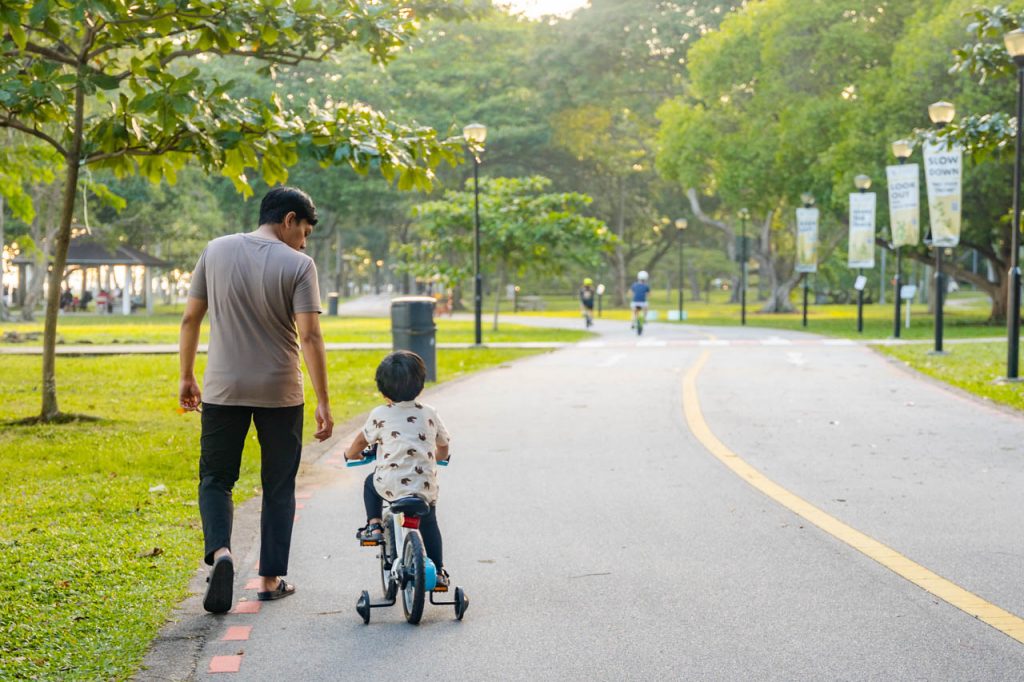
As parents, we’ve forgotten the joy of watching our children grow at their own pace. The joy of shared laughter over nothing in particular, of weekends not crammed with tuition or errands, of having time and space to just be with our kids, without feeling like we’re failing them if we’re not constantly making them ‘do more’.
In the pressure to achieve, perform, and stay ahead, we’ve accidentally made joy feel like a luxury when it should be the foundation of childhood and parenthood.
If we can reclaim those simple, everyday moments, we’ll not only raise happier and more resilient children, we’ll become more present, connected, and joyful parents too.
I hope that parks and playgrounds will be full, and the tuition centres empty. I hope that we will better support the adults who nurture children with better training, resourcing and manpower ratios. I hope that schools will be resourced to become more inclusive, engaging and nurturing spaces, where children will feel safer and loved, and where their diverse strengths will be identified and nurtured beyond exam results.
What’s a challenge Singapore must overcome in the next six years to stay a place where people want to live and thrive?
We have to start recognising that both being a parent and being a child have become much more difficult over the past few decades. Singapore has to gather the resolve and resources to truly improve childhood and parenthood.
For most of humanity, the key challenges of childhood and parenting have been mostly physical—for example, making sure children were healthy and safe. But now, the challenges are largely psychological. Very few of us parents are properly trained to handle these issues.
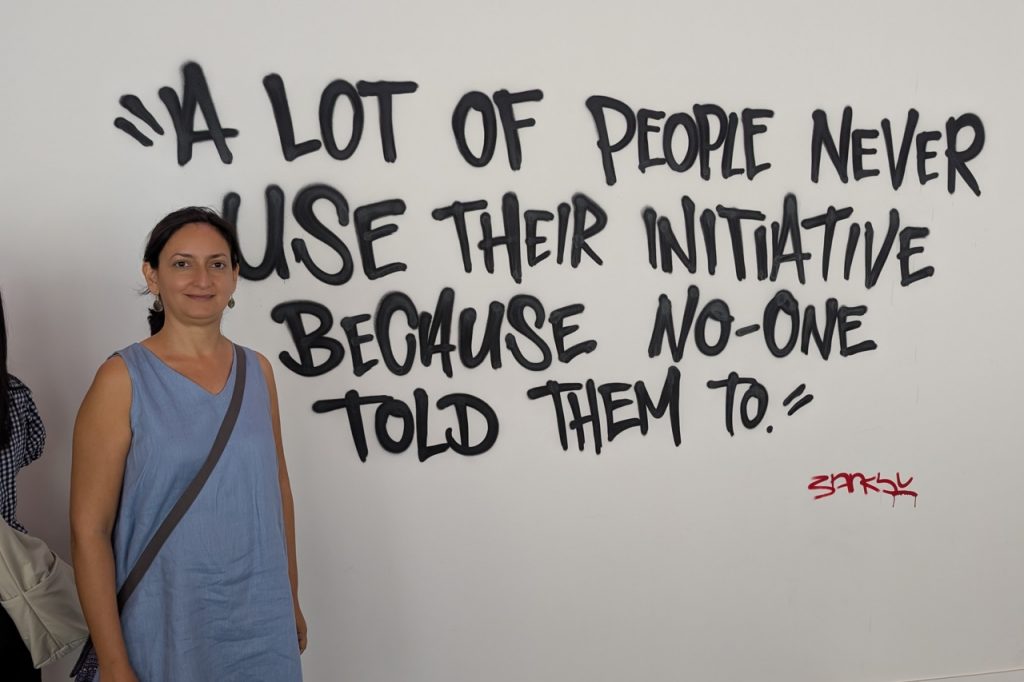
For my younger child, we had struggles with rigid academic expectations in the local school system, and teachers not trained to support children with ADHD. At home, there were executive function challenges. Simple things like getting ready on time in the morning were like a battle (sometimes still are!).
My older daughter had a late ADHD diagnosis and no support. She went through a tough time psychologically: Bullying, cyberbullying, toxic friendships, anxiety, school refusal, depression, and self-harm, amongst others.
It was often overwhelming for me as a parent. There were periods where I truly felt like I was failing—not because I didn’t care, but because I didn’t have the right tools.
And that’s when I had to stop and look inwards. So much of how we parent comes from our own childhood: our unspoken expectations, our coping strategies, even how we communicate with our children. But when you have children who don’t fit the mould, that toolkit often doesn’t work. This is where parents often end up being either too harsh or too permissive, always second-guessing themselves.
I had to completely rewire my understanding of what it means to be a “good” parent and learn, slowly and painfully, how to show up for this child, not the imaginary one in my head. Spiritual practices like Reiki and meditation helped me a lot through this period.
There are other challenges affecting children across the board: high academic expectations, waning free and physical play, excessive screentime, evolving forms of bullying, overly large class sizes, burnout amongst teachers that balance these developing needs under a time crunch and rigid curriculum, and parents with financial struggles trying to deliver a stable upbringing.
We can see the results of this pressure in Singapore’s youth mental health statistics.
12 percent of 10 to 18-year-olds meet the criteria for having a mental health disorder, but most parents are unable to tell. Furthermore, nearly a third of 15-35 year olds have experienced severe depression, anxiety or stress.
At the same time, many of us parents don’t realise how much of modern parenting is about understanding and applying child psychology. Often, we only realise it when our children are exhibiting signs of mental health distress. Even then, it is hard to be a good parent until one has dealt with one’s own traumas and triggers.
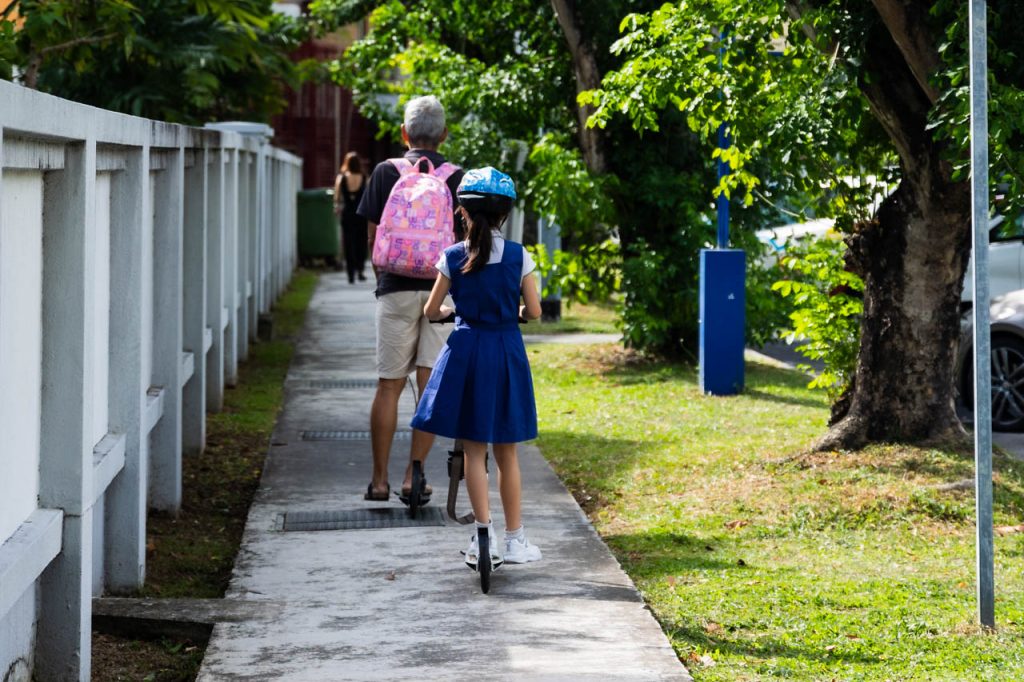
If we want to remain a country where people actively choose to have and raise children, we have to make that choice feel less daunting and more like a source of meaning and joy.
That, to me, is Singapore’s greatest challenge. To start reducing the immense pressure on its children and families.
If you could introduce a new national priority for Singapore, what would it be, and why?
I would make holistic child development a national priority. What would it look like if child well-being were treated as seriously as economic growth or ageing population strategies?
It would mean better resourcing in schools—smaller class sizes and teams of experienced learning support teachers (without their own classes to teach).
It would mean an updated syllabus and more accurate testing methods, and less reliance on a one-time high-stakes exam like the Primary School Leaving Examination (PSLE).
It would mean investing in parents, so they’re not navigating these challenges alone while trying to earn a living.
It would mean building a society where children of all backgrounds and abilities are seen, supported, and celebrated.
This is the future EveryChild.SG is working toward, because a society that gets childhood right is one that can set everyone up to thrive.
What small shift—policy or mindset—could make a big difference in the daily lives of your community?
If we could stop treating the PSLE as the be-all and end-all of childhood, that alone would change thousands of lives.
Every year, we hear from parents whose entire family life has been taken over by this exam. Mothers are quitting their jobs to supervise homework. Young adults are choosing not to have children because of traumatic memories around schooling. Families are spending thousands on tuition just to keep up. Children are having mental breakdowns.
It affects how we parent, how teachers teach, and how children see themselves at an age where they’re still figuring out who they are.
It’s easy to blame parents for putting pressure on children. The real problem is that PSLE uses stack ranking in order to allocate children to secondary schools. This means that children (and parents) are locked in a cycle of competing harder and harder to make sure children don’t end up in ‘worse’ schools than their friends.
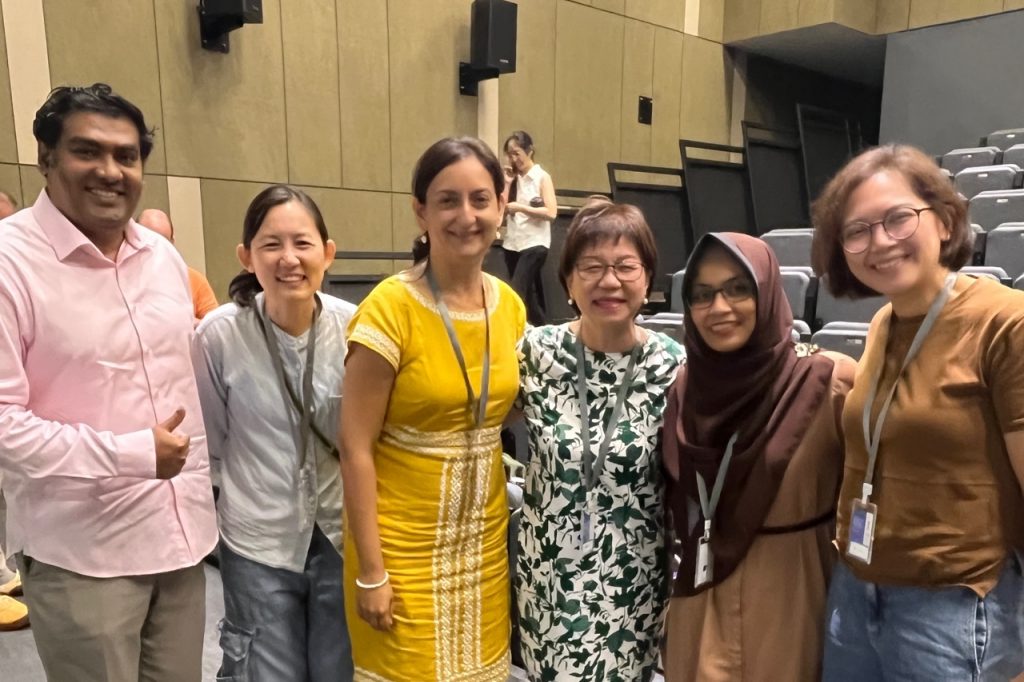
A small but powerful shift would be to make the PSLE optional by creating guaranteed through-trains between primary and secondary schools.
Some secondary schools can remain selective for children who are gifted academically, or in sports, music or arts. These schools can continue to use PSLE or their own entrance exams to select students. For the vast majority of other children—late-bloomers, those with different strengths, those who want a balanced childhood and time to explore other interests, and others alike, there should be meaningful alternatives that don’t make them feel like failures at 12 years old.
We don’t need to abandon rigour, or excellence, or meritocracy—we just need to modernise the system. Start truly nurturing 21st-century skills, and allow more choice for children and families, so children can follow their own unique developmental paths to success.
Singapore moves fast. What’s one thing we need to slow down for?
We need to slow down for childhood.
In Singapore, we are so caught up with speed and efficiency that we tend to forget that children don’t grow well on fast-forward. Children need plenty of free time to explore, to make real friends, to make mistakes, and to figure out who they are.
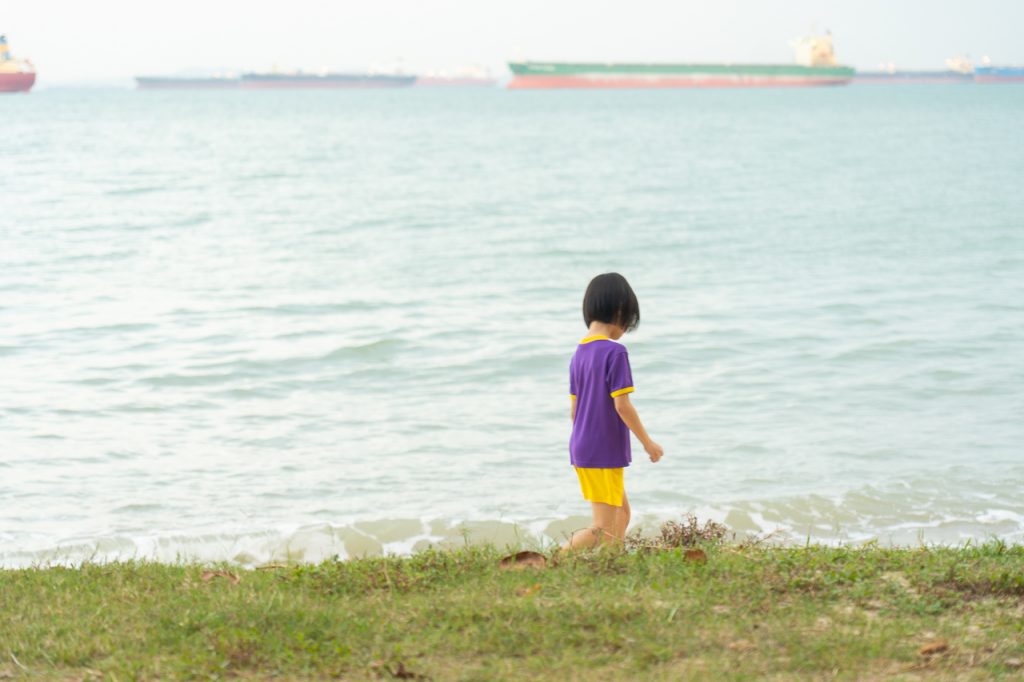
But we rush them from school to tuition to enrichment to homework, from one structured activity to another, starting from preschool all the way through primary school, without thinking about the impact of all this on their little brains, bodies, and hearts.
Then we wonder why they’re anxious, disconnected, or struggling to cope. Or why the ones who seem to be doing well academically start acting out or self-harming in their teen years.
The science is actually very clear. The early and middle years of childhood are critical for brain development, social-emotional growth, and mental health. Unstructured play–especially outdoors and with friends–isn’t just fun; it’s essential for developing executive function, creativity, empathy, and resilience. Children who play more tend to self-regulate better, have stronger relationships, and are more adaptable in the face of challenges later in life.
So we need to slow down and let children be children. Not just when they’re babies or toddlers, but all the way through teenhood. Let them climb trees, daydream, explore, fall down and get back up. Let them feel they’re loved for who they are, not just for what they achieve.
Childhood isn’t a race. It’s a season. It’s a chance to develop fully into secure, capable, happy adults, and it only comes around once.
What’s one thing about Singapore you’d want to protect for the future?
I’m really grateful for how physically safe and well-kept Singapore is. It is one of the things that still makes this a great place to raise children.
Our children can walk to school, play downstairs, or take public transport alone without us worrying. Our healthcare is good, the sidewalks are clean, our parks are lush and accessible, our public libraries are well-stocked, our tap water is safe—these may seem like simple things, but they create the foundation for freedom and trust in everyday life.
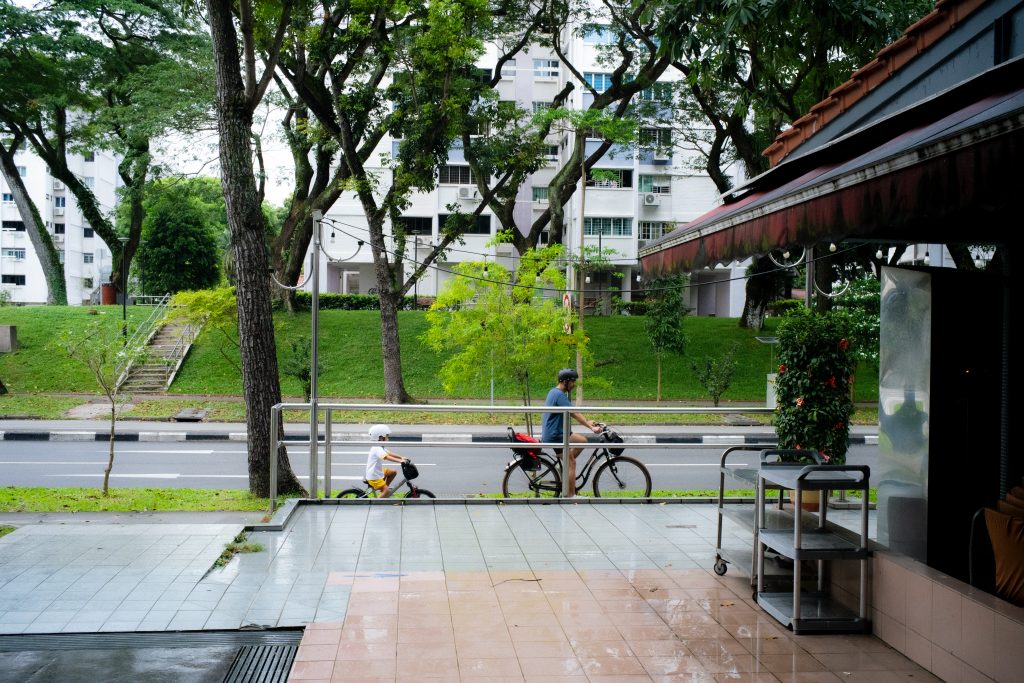
For parents, these small things matter–the playground downstairs, the clinic nearby, the confidence that your child can explore the world without constant danger. These are the things that allow childhood to flourish.
As we work towards improving other areas, like education and mental health, I hope we continue to treasure and invest in the physical safety and public health infrastructure that quietly supports so much of our daily well-being.
In 2030, what kind of Singapore would you be proud to call home?
I’m hoping for a Singapore that truly puts children at the heart of our national priorities. Not just childcare places and policies to encourage more babies, but also in how we care for children all the way through to their teenage years.
That will mean transforming the systems and culture they grow up in, especially our education system, which touches every child.
For too long, we’ve measured success by academic outcomes alone, even though we know that what children need to thrive goes far beyond exam results. They need schools that provide safe relationships, space to play, meaningful, broad-based and relevant learning, and adults who see their potential, not just their performance.
That’s why EveryChild.SG has put forward a 10-year plan to transform primary education, with step-by-step suggestions for how to reduce class sizes, update the syllabus to nurture 21st-century skills, improve how we test learning, and make PSLE optional by 2036.
It’s ambitious, but it’s possible. As one of the richest countries in the world (per capita), we have the resources. What we need now is the will.
In the Singapore I hope to see in 2030, parenting won’t feel like a battle against the system. Teachers will start having the time and tools to do what they came into the profession to do—teach and inspire. And every child will grow up knowing they matter, just as they are.
That’s the kind of home I want to build, and I believe we can get there, together.

